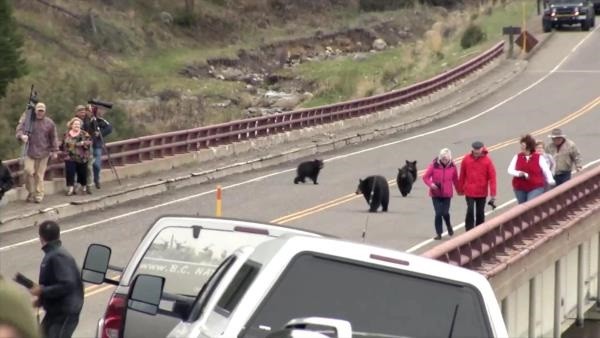The majority of studies conducted on the diet of black bears in Yosemite National Park have been the result of the examination of bear feces. Carolyn Kurle, an assistant professor of biology at the University of California at San Diego, adopted a method developed in Norway that reasons that an animal’s diet is better accessed by the examination of carbon and nitrogen in bear’s hair relative to the abundance of the elements found in plants and animals in the bear’s environment.
The study found that black bears in Yosemite prefer nuts and berries. The thought that bears ate ants preferentially as a protein source was found to be untrue. Bears do eat ants accidentally when foraging for nuts, plants, and berries. The bears do occasionally supplement their protein needs with mule deer. Animal protein makes up a very small part of the bear’s diet. The bears do not eat people preferentially.
Black bears have caused 50 injuries to people in the last twenty years in Yosemite National Park. The U. S. Government spends $500,000 annually to prevent human and bear interaction that can lead to injury. Possibly the “Do not feed the bears.” signs should read “Do not feed the bears if you want to keep your arm.” Bears are afraid of people generally.
One of the brighter aspects of the bear diet research is that fewer people are feeding black bears in Yosemite than they did in the past. Human food was found in a decreasing number of bears over the past century and the rate has decreased even more in the last 20 years. Four million people visit Yosemite each year at present compared to one-half million visitors 15 years ago but the amount of human food that black bears consume has remained constant.















